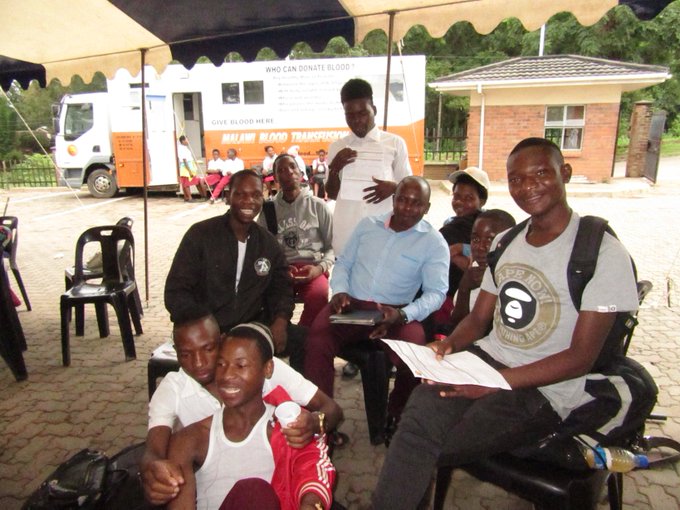The spread of HIV in the 1980s prompted blood transfusion services across the world to seek new strategies to identity risk behaviours and risk population groups in order to identify safe blood donors who will donate on a regular basis. In 1989, the National Blood Transfusion Service in Zimbabwe developed a new and exciting strategy called “Pledge 25”. They started targeting a previously untapped pool of low-risk blood donor population groups involving young people aged between 16 to 25 years.
The goal is to encourage blood donation amongst school students, university students, youth groups and communities, Church groups and other places of learning. School students and Pledge 25 members donate more than 60% of the blood collected in Zimbabwe. Club 25 was developed from this early beginning when other countries such as the South African National Blood Service (SANBS) further developed the strategy.
Many countries have now adopted this strategy, which has also been accepted and supported by the World Health Organisation (WHO) and the International Federation of Red Cross and Red Crescent Societies (IFRCRCS), and other international organisations associated with blood donor programmes. Club 25 members commit themselves to make at least another 25 blood donations during their life time, and to promote safe life styles to their peers and to assist the national blood transfusion services in encouraging others to donate blood. The initiative has been particularly successful in promoting safe behaviour life styles in young people and is important in HIV prevention and control strategies.
The model has now been adopted in Malawi Haiti, and the Philippines and pilot projects have been established in Bangladesh, Botswana, India, Indonesia, Uganda and Zambia. The HIV sero-prevalence rates among blood donors in the youth in these countries has been reduced by more than 10 times when compared to that found in the general population when matched by sex and age. Malawi Club 25 was established in March 2004.
The Club has elected national and provincial administrative committees to organize activities and has been incorporated as a branch of the Blood Donors Association of Malawi (BDAM). Selected peer donor promoters are assisting the Malawi Blood Transfusion Service (MBTS) to educate their peers, plan activities and in the recruitment and retention of voluntary non-remunerated blood donors from low-risk groups. In turn, the MBTS assists the “Malawi Club 25” in supporting and facilitating regular meetings, providing secretarial services and promotional activities.
CLUB 25 Members benefits
- Acquisition of leadership skills for personal development and growth through interaction at static, national and global levels through equal opportunity for appointment to executive positions within ‘Malawi Club 25’.
- Provision of opportunities for social interaction at regional and national levels and high level collaboration and contact at global level.
- Members benefit from Club’s promotional of healthy lifestyles and setting an example to other young people and self-esteem.
- Overt recognition of Club 25 members as unique role models committed to saving lives.
- Access to appropriate information and advice on how to protect themselves from HIV and other transfusion transmissible infections.
- Participation in leisure activities e.g. sports for emotional and physical development.
- Access to computer will improve computer literacy skills and information on internet for the benefit of Club 25 members and the club.
- Extra- curricular experience can enhance the Club member’s Curriculum Vitae (CV) as part of their career development.
Who can become a Member ?
- Be out of school and within the age bracket of 16 – 25
- Have donated at least three times and once in the past 12 months.
- Commit to donating at least 25 units of blood in their lifetime.
- Commit to leading a safe lifestyle and avoid engaging in risky behaviour.
- Reside within the city for easy access of club secretariat and facilities.

